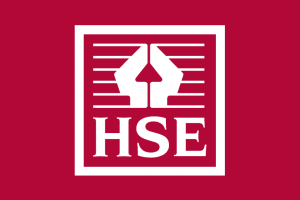The delicate dance of departures – round table with Freeths

Expert advice on how to protect your business from the inside out
In today’s fast-paced business world, the threat of losing valuable employees and sensitive information can keep even the savviest entrepreneurs up at night. As companies strive to stay competitive, the risk of departing staff taking confidential data or starting rival ventures has become a growing concern.
To shed light on this critical issue, we sat down with a group of legal and risk management experts, led by Tristan Duncan, a commercial litigation lawyer at Freeths, known for his expertise in employee disputes. The insights they shared offer a roadmap for businesses looking to safeguard their interests and prevent costly fallout from employee exits.
The Confidentiality Conundrum
“What we’re seeing more and more of are cases involving the misuse of confidential information,” explains Tristan Duncan. “It’s a real hot button issue, and I attribute a lot of that to the impact of COVID-19.”
The shift to remote work has blurred the lines between professional and personal spheres, making it easier for departing employees to siphon off sensitive data. “People have been working from home, and some have had the bright idea to start their own businesses,” says Duncan. “There’s nothing wrong with that, as long as you play by the rules.”
Those rules, he emphasizes, are often laid out in employment contracts – but many businesses fall short when it comes to robust confidentiality clauses and enforceable restrictive covenants. “Some companies have just a basic statement of employment terms, without much detail on confidential information,” Duncan notes. “Just because there’s nothing in the contract doesn’t mean an employee can suddenly start using your customer database or contacting clients.”
Caroline Oxley, HR specialist at Evolve Business Group, has seen first hand the challenges of striking the right balance. “I remember a case where the restrictive covenants were considered unenforceable because they were too restrictive – the judge said you can’t prevent someone from working in their hometown,” she recalls. “It’s a fine line between protecting your business and allowing people to make a living.”
Mike Miller, commercial litigation lawyer at Freeths, agrees that tailoring restrictive covenants to individual roles is crucial. “There’s no one-size-fits-all approach. The covenants need to be proportionate to the legitimate interests of the business and the seniority of the employee.”
Tristan Duncan emphasised the importance of proactive measures. “If you know people are leaving, have a conversation. Many disputes can be avoided by simply talking things through. And make sure your employment contracts are up to par – with specific confidentiality clauses and clear guidelines on what’s considered sensitive information.”
Guarding Against the Insider Threat
The panel’s insights extend beyond just departing employees to the broader challenge of safeguarding sensitive data from internal threats. Laura Schmuttermeier, risk and compliance expert at RSM, highlighted the need for robust controls.
“The moment an employee hands in their notice, we’d restrict their ability to print documents or send information to personal email addresses,” she explains. “We’d also monitor their activity in the lead-up to their departure, just to be on the safe side.”
Kelly Tighe, chief risk officer at We Do Finance, has encountered similar issues in her industry, which she describes as “quite incestuous.” She notes that the transfer of sensitive information doesn’t always happen via email these days. “It’s about forms and documents – people might have a set of letters they’ve collected over the years and pass them on to a new employer.”
Tristan Duncan emphasised the importance of educating employees on the importance of confidentiality. “It’s not enough to just have the clauses in the contract. You need to make sure your staff understand what’s considered confidential and the consequences of misusing it.”
The Delicate Dance of Departures
When an employee does decide to leave, navigating the transition can be a minefield. Jonathan Mills, chief commercial officer at Money Plus, has seen how the loss of a key staff member can impact a business, especially in niche sectors.
“People move around a lot in our industry, and they often bring processes and ‘golden nugget’ information with them,” he explains. “That can suddenly level the playing field for our competitors, and it’s a real challenge to protect those kinds of proprietary assets.”
Fran Henshaw from Beever and Struthers and the chair of R3, also suggested the importance of weighing up exactly where a departing employee may end up. “If they go to a pure competitor, then obviously they could take the data with them and use it. But if they were going to just set up on their own, surely just maintain your relationship with them could actually be a benefit to you as well, because they may get in contracts that are too big for them. I’ve always thought that the negotiation is about talking to people and not burning bridges.”
Tristan Duncan suggests that a proactive, transparent approach can be the best defence. “If you know an employee is leaving and they have an important client relationship, have a conversation about it.”









